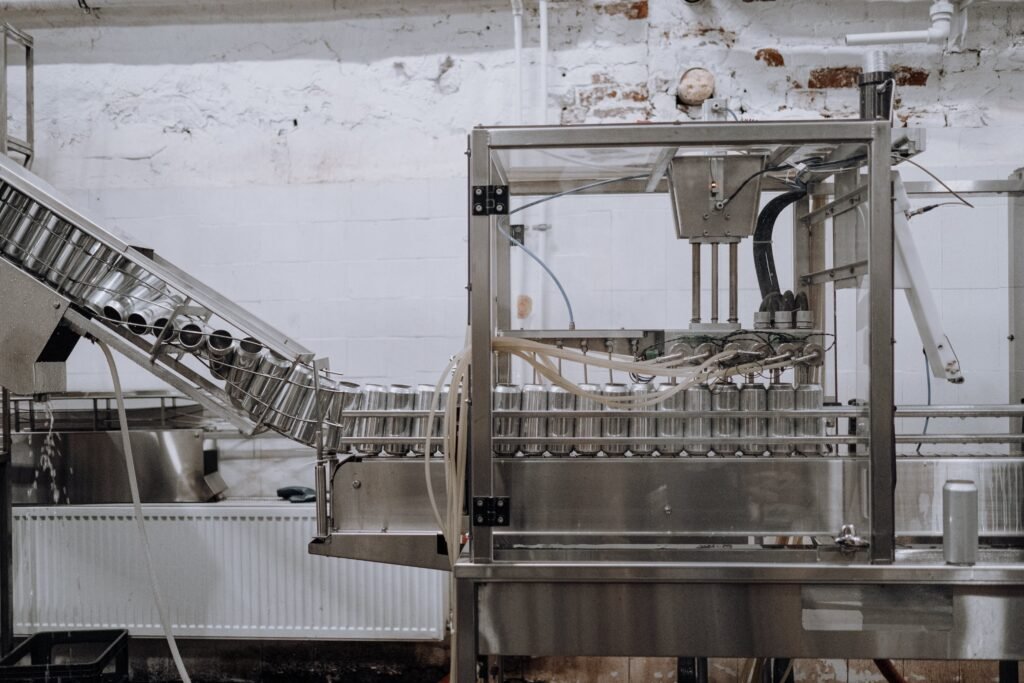In today’s rapidly evolving technological landscape, artificial intelligence (AI) is revolutionizing various industries, including manufacturing. One area where AI is making a significant impact is in improving production processes. By leveraging AI technologies, manufacturers can streamline operations, enhance efficiency, and drive innovation.
The Role of AI in Production Processes
AI refers to the simulation of human intelligence in machines that are programmed to think and learn like humans. This technology enables machines to analyze vast amounts of data, identify patterns, and make informed decisions. When applied to production processes, AI can optimize various aspects, such as planning, scheduling, quality control, and maintenance.
1. Planning and Scheduling
AI-powered systems can analyze historical production data, market trends, and customer demands to generate accurate forecasts. This information helps manufacturers plan production schedules, allocate resources efficiently, and minimize downtime. By optimizing planning and scheduling, AI enables manufacturers to meet customer demands promptly while reducing costs.
2. Quality Control
Ensuring product quality is crucial for manufacturers. AI can be used to monitor production lines in real-time, detecting defects and anomalies. By analyzing data from sensors and cameras, AI systems can identify patterns that indicate potential quality issues. This proactive approach enables manufacturers to take corrective actions before defective products reach the market, reducing waste and improving customer satisfaction.
3. Predictive Maintenance
Unplanned equipment failures can disrupt production and lead to costly downtime. AI can help prevent such disruptions by implementing predictive maintenance strategies. By analyzing sensor data and historical maintenance records, AI systems can predict when equipment is likely to fail. This allows manufacturers to schedule maintenance activities proactively, minimizing unplanned downtime and extending the lifespan of their assets.
The Benefits of AI in Production Processes
The integration of AI into production processes offers several benefits for manufacturers:
1. Increased Efficiency
AI-powered systems can optimize production processes by identifying bottlenecks, streamlining workflows, and reducing waste. By automating repetitive tasks, AI frees up human workers to focus on more complex and value-added activities. This leads to increased productivity and efficiency across the production line.
2. Enhanced Product Quality
By leveraging AI for quality control, manufacturers can detect defects and anomalies at an early stage, preventing the production of faulty products. This results in higher product quality, reduced rework, and improved customer satisfaction. AI can also help manufacturers identify areas for improvement in the production process, leading to continuous quality enhancement.
3. Cost Reduction
AI can help manufacturers identify cost-saving opportunities by optimizing resource allocation, reducing energy consumption, and minimizing waste. By improving planning and scheduling, manufacturers can avoid overproduction and reduce inventory costs. Additionally, predictive maintenance can prevent costly equipment failures and minimize maintenance expenses.
4. Innovation and Adaptability
AI enables manufacturers to analyze vast amounts of data from various sources, including customer feedback, market trends, and production metrics. This data-driven approach allows manufacturers to identify new market opportunities, develop innovative products, and adapt to changing customer demands. By leveraging AI, manufacturers can stay ahead of the competition and drive continuous improvement.
Challenges and Considerations
While AI offers numerous benefits for improving production processes, there are some challenges and considerations to keep in mind:
1. Data Quality and Availability
AI relies on high-quality data for accurate analysis and decision-making. Manufacturers need to ensure that their data is clean, relevant, and accessible. Data collection and integration processes should be well-designed to avoid biases and inconsistencies that can affect the performance of AI systems.
2. Workforce Adaptation
Integrating AI into production processes may require upskilling or reskilling the existing workforce. Training employees to work alongside AI systems and leveraging their expertise can maximize the benefits of AI technology. Clear communication and change management strategies are crucial for successful implementation.
3. Ethical Considerations
AI raises ethical concerns, such as data privacy, algorithmic biases, and the impact on human employment. Manufacturers must ensure that AI systems are designed and implemented ethically, taking into account the potential social and economic implications. Transparency and accountability in AI decision-making processes are essential.
Conclusion
Artificial intelligence is transforming production processes, enabling manufacturers to optimize planning, enhance quality control, and implement predictive maintenance strategies. By harnessing the power of AI, manufacturers can increase efficiency, improve product quality, reduce costs, and drive innovation. However, it is crucial to address challenges and considerations related to data quality, workforce adaptation, and ethical implications. With careful planning and implementation, AI can revolutionize production processes and pave the way for a more efficient and sustainable manufacturing industry.

